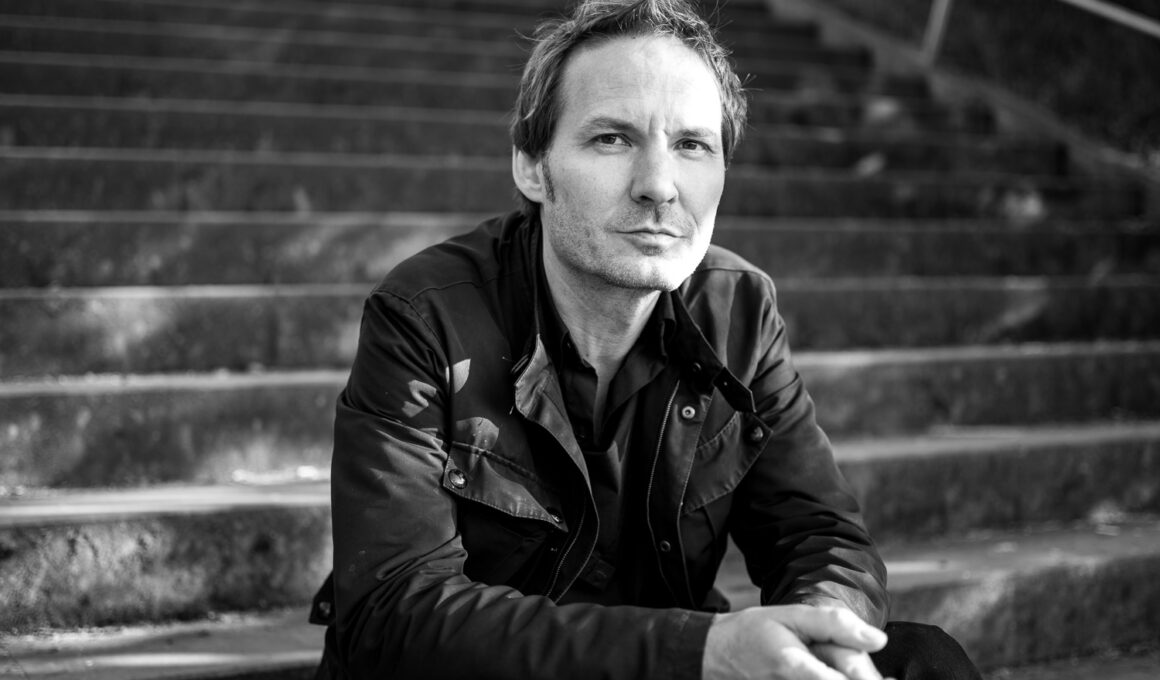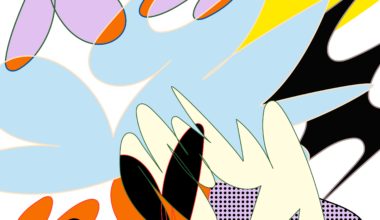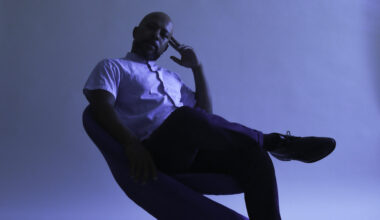Sven Helbig is a composer for choir, orchestra and chamber music. He combines classical composition techniques, with a deep knowledge of electronic sound synthesis and his skills on various musical instruments.
Sven fell in love with music as a kid through his self-built radios, some parents’ vinyls and the local brass bands in his small East German home town. Electronic bricolage was his first passion and remained a creative element in Sven’s later orchestra and choral music.
He started out learning clarinet and guitar, later moving on to drums. The self-taught composer’s acclaimed debut album Pocket Symphonies has been released on the Deutsche Grammophon label. Through the last years, Sven’s concerts inspired audiences at the Barbican Centre London, Alexandrinsky Theatre St. Petersburg, Bolshoi Opera Minsk, Manchester Camerata, Reina Sofia Madrid, Volksbühne Berlin, Elbphilharmonie Hamburg as well as the Enescu Festival Bucharest to name just a few.
Sven’s works have been staged by renowned artist like BBC Singers, Fauré Quartett, cellist Jan Vogler, the choir of the Bolshoi Opera and conductor Kristjan Järvi. On stage, Sven performs live-electronics and percussion alongside the ensembles. Sven is a long time collaborator of Industrial-Metal band Rammstein and british Pop icons Pet Shop Boys. He orchestrated their ballet “The Most Incredible Thing”, premiered at Sadler’s Wells/London, as well as “A Man from the Future”, premiered at Royal Albert Hall/London.
Sven Helbig presents his weekly radio show Schöne Töne for the second time live on stage in the Großer Sendesaal of the Haus des Rundfunks in Berlin. Join the Deutsches Symphonie-Orchester Berlin, violinist Noa Wildschut, composer Mario Batkovic and conductor Ralf Sochaczewsky for an extraordinary sonic adventure, Saturday, 12.11.2022.
Facts
1: Nature is not an “environment”. Life is one organism.
2: Death might be a fact and it would sure help a lot, keeping that in mind.
3: We treat animals badly.
Questions
1. What is the biggest inspiration for your music?
A walk in any kind of nature is the best way to open up my mind and soul.
In general, I can´t see a straight connection between intense moments and the creative process. Experiences are the grapes that got sent into life’s barrel and if the time is right there will be a wine.
2. How and when did you get into making music?
I started constructing little radios at the age of 11. When they finally worked, I got so enthusiastic that I spend nights with my headphones on and listened to what ever came through.
I became obsessed with every little musical and technical detail I could hear, even reverbs, echos, stereo pictures.
3. What are your 5 favorite albums of all time?
1 “Huge Chrome Cylinder Box Unfolding”, Venetian Snares
2 “Music Has The Right To Children”, Boards Of Canada
3 “Horowitz in Moscow”, Vladimir Horowitz
4 “Four Last Songs”, Gundula Janowitz, Karajan, Berlin Philharmonic
5 “Spem in Alium”, The Tallis Scholars Sing Thomas Tallis
4. What do you associate with Berlin?
Berlin is open in all directions. It doesn’t put me in a pre-configuration, like many other city’s that have a kind of cultural dialect. Here, every day I feel like taking a white sheet of paper and start drawing.
5. What’s your favorite place in your town?
This is with no doubt a little bar called “Blue Note”. Everything is right in this place. They play always good music, the sound is great, the drinks, light, just everything. What I expect from a good bar, is that I can imagine sitting there alone a whole night.
6. If there was no music in the world, what would you do instead?
I would buy a vineyard. Any kind of agriculture is taking over my ambitions too.
Not, because I love diggin in the earth all day, but because I become more and more convinced that a healthy mind should have a strong relation to the origin of food. Alienation from natural grown food will degenerate our thoughts, culture and in a chain of events our society.
7. What was the last record you bought?
I bought Rutger Hoedemaekers’ “Age of Oddities”. A wonderful Album full of rich string arrangements and a perfect blend with electronics.
8. Who would you most like to collaborate with?
I would love to put distorted French horns on a Surachai album.
9. What was your best gig (as performer or spectator)?
I would choose the concert with string quartet at CAFF in Buenos Aires in 2015.
The atmosphere in the vibrant city of Buenos Aires is highly energizing any-ways and the Argentinian string quartet I was working with could play classical scores and improvise on the same high level. This was fantastic. I wrote a piece for them, called “Tres Momentos”. I still remember the sacred feeling on stage and how people from their chairs, when we were finished.
10. How important is technology to your creative process?
It has become much more important during the last years. I started reconstructing my classical compositions on stage with computers. I could not live without those transformations anymore, since they are a reflection of how we hand le tradition today. Computers are wonderful instruments and as a composer I can’t skip the most versatile instrument that exists today.
11. Do you have siblings and how do they feel about your career?
I have a sister and a brother. Both like my music a lot.


